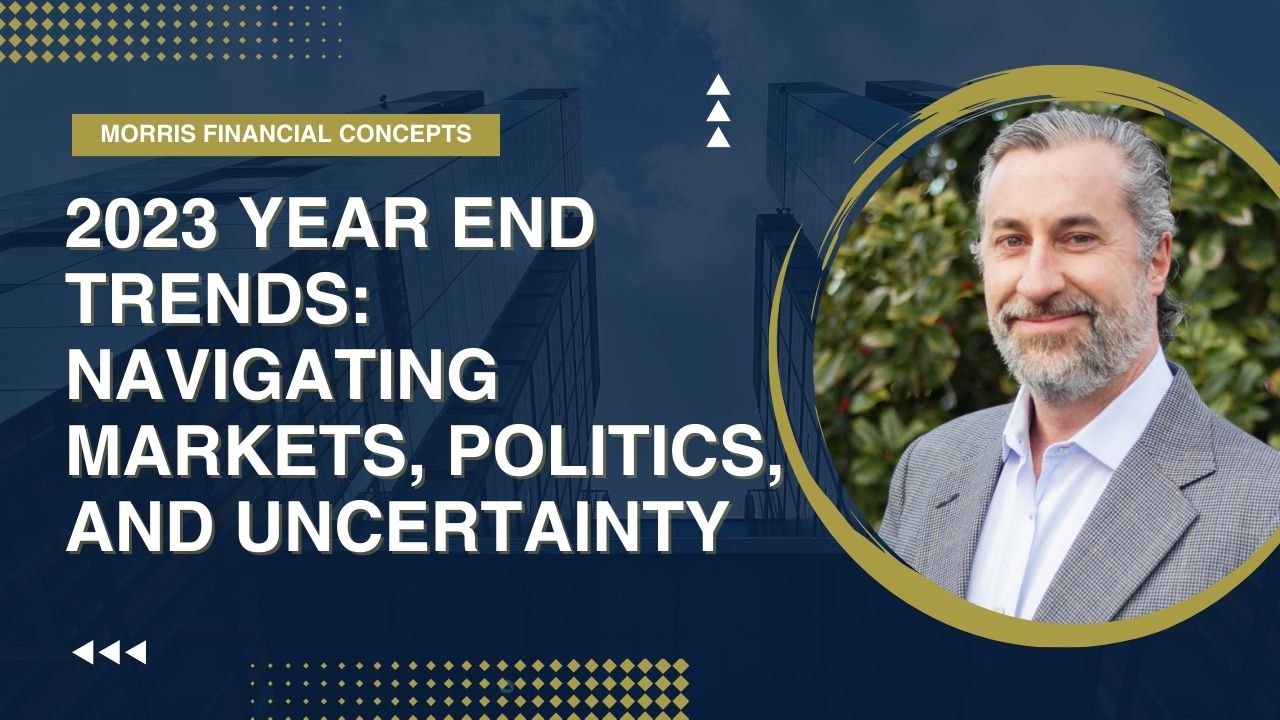How to Avoid Behavioral Biases in Finance to Make Better Investments
Behavioral biases in finance often can be pitfalls for investors, negatively impacting wealth accumulation over time. Behavioral mistakes cost real money, and our expert financial advisors at Morris Financial Concepts in Charleston are here to help avoid these common mistakes.
What are Behavioral Mistakes?
Behavioral mistakes are often rooted in cognitive biases—systematic errors in thinking that can occur when people are processing and interpreting information in the world around them. At Morris Financial Concepts, Inc. (MFC), we are skilled in identifying and mitigating these cognitive biases, helping clients optimize decision-making and behavioral choices.
When people face complex decisions, they often rely on basic judgments and preferences to simplify the situation. Thinking in this particular way can lead to systematic deviations from rational decision-making. Our brains can easily mislead us, especially when it comes to money! These tendencies can arise from information-processing shortcuts, emotional motivations, distortions in thought, or social influence. When it comes to investing and finance, cognitive biases often lead to suboptimal investment decisions and undesirable financial outcomes.
It may be helpful to consider a few common examples of cognitive biases, and the ways they can lead to behavioral missteps in investing:
Confirmation Bias
Investors may have a bias toward seeking out and accepting information that confirms their existing beliefs. They avoid or ignore information to the contrary. Confirmation biases in finance helps us avoid the emotional discomfort of thinking we might be wrong. This can lead to investor overconfidence, inappropriate or risky investment decisions, and failure to learn from mistakes.
Loss Aversion Bias
Behavioral finance research by Daniel Kahneman and Amos Tversky shows that humans are imperfect judges of self-interest and have a strong natural aversion to loss. We tend to feel the pain of losses more intensely than the pleasure of gains. This loss aversion bias in investing can lead to suboptimal decision-making in the context of investment markets, where risk and return are inextricably linked.
Overconfidence Bias and Self-Attribution Bias
Overconfidence bias is the tendency for a person to overestimate their own abilities. For example, 73% of Americans think they are above-average drivers according to AAA studies! Self-attribution bias can cause us to attribute successes to internal factors such as our smarts and skills, and failures to external factors. These biases in finance can lead investors to overestimate their own skills, make increasingly risky investments, and ultimately lead to larger losses than they can tolerate.
Herd Mentality Bias (Fear of Missing Out/FOMO)
People have a natural tendency to want to fit in with the group. This can lead investors to follow and copy what other investors are doing. They hop on the bandwagon of currently trendy investments. Examples include the new tech IPOs in the late 90s and the meme stocks more recently. The more rational option is to do investment research carefully and choose options most appropriate for individual goals and circumstances.
Recency (Availability) Bias
With this bias, people tend to put too much emphasis on recent events. Whether it is market trends, or the performance of individual investments, recency bias in finance can cause investors to make poor investment decisions. They buy high and sell low versus adhering to a sound investment plan based on comprehensive research and decades of market history.
Hindsight Bias
This is the tendency to view past events as being more predictable than they were. We usually receive more information after an event takes place, which leads us to believe we knew more than we did leading up to the event. We try to package complex series of events into tidy stories after the fact. Consider the 2008 financial crisis or the rise of Apple stock. Hindsight bias in finance can cloud objectivity in the investment decision-making process, and again lead to a tendency toward overconfidence in predictive ability.
How To Avoid These Behavioral Mistakes
These are just a handful of the many cognitive biases that can negatively impact investor behaviors and outcomes. Poor decisions can take a meaningful toll on wealth accumulation over time. Part of our job as Certified Financial Planners TM is to help with these and improve outcomes.
Humans are prone to cognitive biases, and these can lead to behavioral mistakes. At MFC, we work hard to identify and understand these biases. We strive to develop financial planning strategies to overcome them. We add value by helping our clients navigate these potential behavioral missteps, so they can stay the course toward optimal financial decisions. As a Charleston-based financial firm, we believe in a coordinated strategy for wealth management that avoids common pitfalls our clients may encounter. We take a holistic approach to strategizing for your financial success in the present and future. Learn more about Morris Financial Concepts services and how you can start your journey to financial freedom by visiting or contacting us today.


